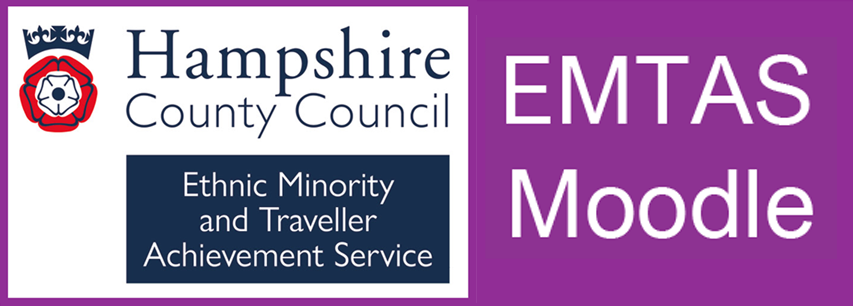Blog entry by Astrid Dinneen
Anyone in the world
By former EMTAS Specialist Teacher Advisor Jess Richards

It’s one thing to be an advisor helping other people welcome new arrivals. It’s quite another when your family become the new arrivals themselves.
At the start of 2024 my husband and I relocated to Texas with our two children. To be absolutely clear, we are in a privileged position. We weren’t escaping conflict or instability, we had the support of a big corporate employer and – most significantly of all – we didn’t have a language barrier to overcome. Nonetheless, moving several thousand miles with kids has been a real education for this so-called ‘specialist’.
I am pleased to say I have seen a lot of excellent practice. My daughter arrived in Kindergarten in the middle of the school year and was literally welcomed with open arms. Teachers stood outside on her first day with signs like an airport arrivals lounge to make sure she knew where to go. They were visibly excited to meet her and make her part of the school community. We received lots of information about aspects that were completely new to us: riding the bus or joining the car lines for school pick up, buying school supplies. Despite the frequency of accepting new students from overseas it hadn’t dampened their enthusiasm. Not once did our arrival feel like an added burden in their busy schedules. School spirit and belonging wasn’t just theoretical; they were living it out every day.
There’s an infographic sometimes used in EMTAS training with concentric circles showing the concerns of newly arrived students. The outside circle is the least complex, applying to any child at a new school without the added burdens of language acquisition or forced displacement. This is the circle where my family sits. Will I make friends? Will I know where to find the toilet? Will they have food I like? These are easy to solve but often overlooked. I have a new appreciation for them now. When you’re operating in a totally different education system, the little things really matter.
What did my children find most challenging? Ironically, my six year-old daughter says it’s the language. She’s a first language English speaker in a first language English setting and yet she’s still navigating linguistic differences every day. We tried to prepare her for the obvious: restrooms, recess, trash. Others she learned by inference or plain old misunderstanding: band aids, tennis shoes, braids. Luckily she isn’t alone in a big expat community and she’s socially confident. A shy child might have found it quite tough.
The linguistic challenges for my three year-old son have been much more stark. Still early in his own English language journey, he had less context to help him piece things together. We talked about the ‘bathroom’ and the ‘restroom’ and his ‘pants’ but didn’t realise how frequently he would be asked, ‘do you need to go potty?’ Once he worked out it was ‘potty’ not ‘party’ (accents are tricky when you’re three!) he still thought it wasn’t for ’big boys’ like him. He assured them in no uncertain terms that he uses the toilet.
Our move has also taught me a lot about an aspect we sometimes overlook: cultural difference. I felt I had lived in America for nearly 40 years through my TV screen. I didn’t expect to feel so…different. Outside of my home country I don’t always know the code. What are suitable topics of conversation? Luckily we have Texan friends who will help us out and fortunately it’s usually fairly low-stakes. My daughter’s school explained that we needed a home-made post box in time for 14th February. Nonethless I didn’t realise every child in my son’s preschool class required a treat as well as a Valentine’s card. Next year we will try not to come off as the stingy Brits.
In the grand scheme of things these are minor issues. However, they serve to underline the scale of the challenge for other children who might be newly contending with language, literacy and sometimes the imprint of trauma. It’s a steep hill to climb. The very best thing we can offer in schools is empathy.
[ Modified: Monday, 14 October 2024, 3:51 PM ]
